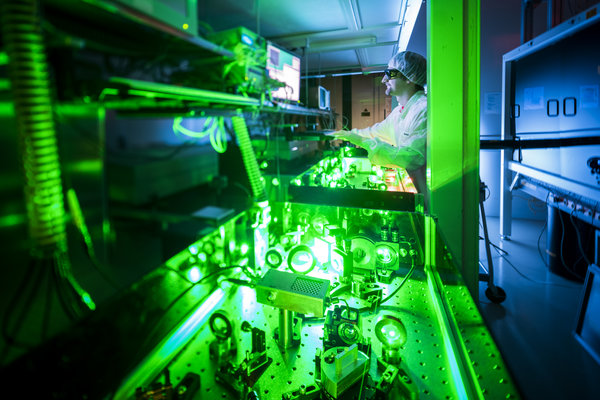The pulses of the femtosecond front end are generated with a commercially available laser oscillator that emits pulses with a repetition rate of 72 MHz, a pulse length of around 110 fs and energies of around 3 nJ. The pulses are amplified to about 500 µJ in an ‘ultrafast parametric amplifier’ (uOPA) without loss of contrast. This is followed by an adjustable pulse stretcher, which realises the first step of the ‘chirped pulse amplification process’ (CPA). A stretching ratio of 190 ps/nm reduces the peak power to values below the damage threshold of the optical components in the subsequent amplifier chain. The stretched pulse is then amplified in a regenerative titanium:sapphire amplifier with a repetition rate of 10 Hz. The output energy is typically 15 mJ. The entire system can thus achieve a contrast (pulse to background) of more than 120 dB.
PLASMA PHYSICS NEWS
Plasma physics seminars
During the academic semesters the plasma physics department hosts seminars on Tuesday at 2:30 pm. Details can be found on the Indico page.
***
LPA virtual seminar series: We are part of the virtual seminar series LPA "Lasers, Plasmas and Accelerators”. Find detailed information about the LPA-series at www.lpa-seminars.com.
***
Laserlab-Europe Talks at Laserlab.
Conferences and Workshops
20th Direct Drive and Fast Ignition Workshop
May 19-22, 2025, GSI Darmstadt
***
2025 International Workshop on Applications of High Energy Proton Microscopy
June 1-3, 2025, Freiberg University, Germany
***
June 4, 2025, online
***






